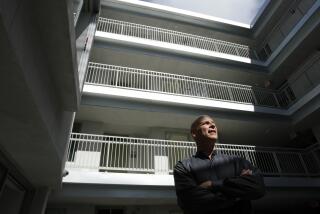Hill Williams ‘Update’ Raises More Questions
- Share via
SANTA ANA — Trustees for Hill Williams Development Corp. and its fund-raising partnerships met Friday in U.S. Bankruptcy Court to present an update on the cases. But their “status conference” generated more questions than it answered.
From 1989 through 1992, Anaheim Hills home builder Hill Williams raised $90 million from about 5,000 investors by offering a 15% annual rate of return on the money, which allegedly would be used to develop real estate. The company and its four income funds filed for Chapter 7 liquidation earlier this year.
In March, the state Department of Corporations accused Newport Beach resident Donald H. Williams and his Hill Williams Development of operating a Ponzi scheme (in which new investor money was used to make dividend payments to earlier investors). The department, the U.S. postal inspector and the district attorney’s office are conducting a joint investigation.
The prospects for recovering much of the investors’ money look dim, the trustees said. Such trustees oversee businesses’ operations while they are in bankruptcy.
“We’re not hopeful that there’s going to be a lot of investor money coming out of this,” said William M. Burd, attorney to the trustee for Hill Williams. “It doesn’t appear that any money actually went to the partnerships to develop the properties. Essentially, Mr. Williams spent the money as he saw fit.” Williams has denied any wrongdoing.
Hill Williams purportedly borrowed money from the partnerships to buy 22 properties, most of which are still undeveloped plots of land in Riverside and San Bernardino counties. All of the loans supposedly made by the partnerships are recorded as second deeds of trust.
Burd and Ronald Rus, attorney to the trustee for the partnerships, told Judge John E. Ryan that they have not yet determined whether any money that might be retrieved from the properties should go into one pool for all of the investors or whether the partnerships should seek repayment independently.
The attorneys also said they have not decided on the best way to maximize investors’ chances for recovering their money. The attorneys are considering options such as selling the properties, abandoning them to be foreclosed upon by the senior lenders, and borrowing more money to develop them.
More to Read
Inside the business of entertainment
The Wide Shot brings you news, analysis and insights on everything from streaming wars to production — and what it all means for the future.
You may occasionally receive promotional content from the Los Angeles Times.










